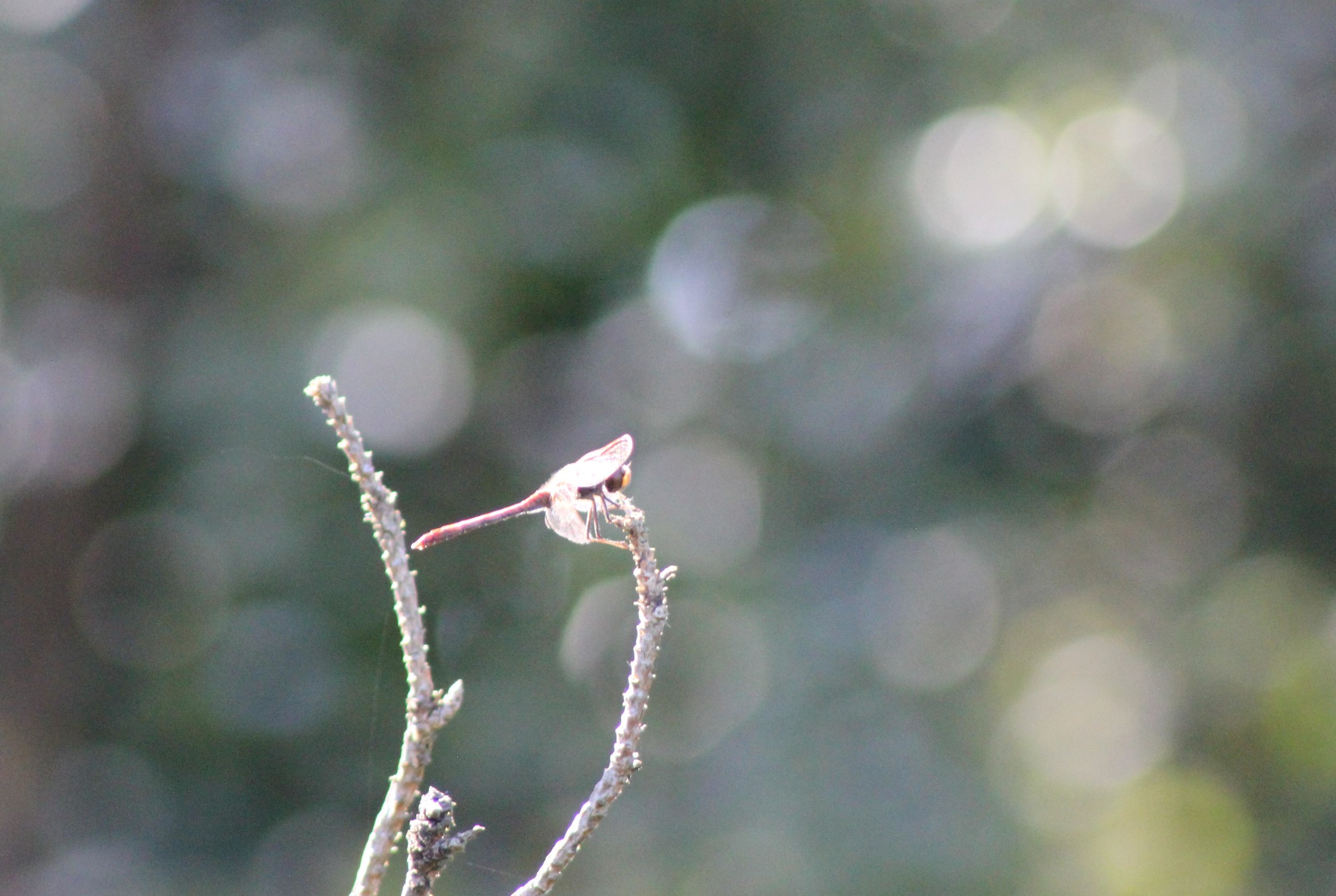Scattered by a gusty wind, the first falling leaves of autumn have now settled over the surface of my pond. As I deliberate whether or not it is too early in the season to bother looking for the big fishing net and try to scoop some out, I take a few minutes to sit on a too seldom used seat and enjoy the un seasonally warm afternoon sun, while I try not to worry about the unsettling reason for it.
My rewilding garden may be full of ‘weeds’ but it still has ornamental plants too, as long as they grow well without input from me and are as useful to nature as our own species, and just by the pond I’m surrounded by the gently waving heads of grasses. The dewdrops of Panicum, Miscanthus feathers and the delicate Molinia spikelets, all looking beautiful to me now, will soon be a living larder for the birds. They, and the low autumn light causing them to shine and sparkle, remind me how much we should appreciate these moments that we perceive to be perfect.
Some garden owners’ interest begins to wane as soon as the flowers fade and brown becomes a seasonal colour again as the greens go. But reds, oranges and buttery yellows are part of the pallet too, appealing to human eyes, in reality they are just an indicator of deciduous plants’ need to recycle nutrients, but no less interesting for that. When we learn a little about our wild gardens’ natural processes, it can open up a whole world of new interest where every garden encounter is intriguing and full of new knowledge which we can then use to act in positive ways to benefit our own and nature’s well being.
The shrubs, trees and hedges are still dense enough with foliage to disguise the goldfinches, dunnock and robin I know from their calls are in there, but it’s the dragonflies that are the obvious aviators here today and as I sit still they amaze me with their speed and accuracy zooming over the water and around the marginal foliage.
A common darter hovers like a kestrel right by my left ear then suddenly jinks away as a pair of hawkers appear twisting and turning together only to quickly disappear from view. I can still hear their surprisingly noisy flight and look up to see them continuing a dog fight up near the top of the birch tree until suddenly there is only one, down by the water momentarily resting on a Iris leaf.
Theirs is life in the fast lane and it isn’t over yet, while there is heat enough in the sun to power their flight, like the bees, wasps and butterflies covering the last of the ivy flowers, our gardens’ insects are still busy about the business of staying alive while they can and when they can’t they will provide a feast for birds.
The year and our part of the planet are turning away from the sun to face the cold of space, nature changes constantly, but life never stops, it works in seasonal cycles and there is a lot of life to see, enjoy and be part of in our gardens still.







